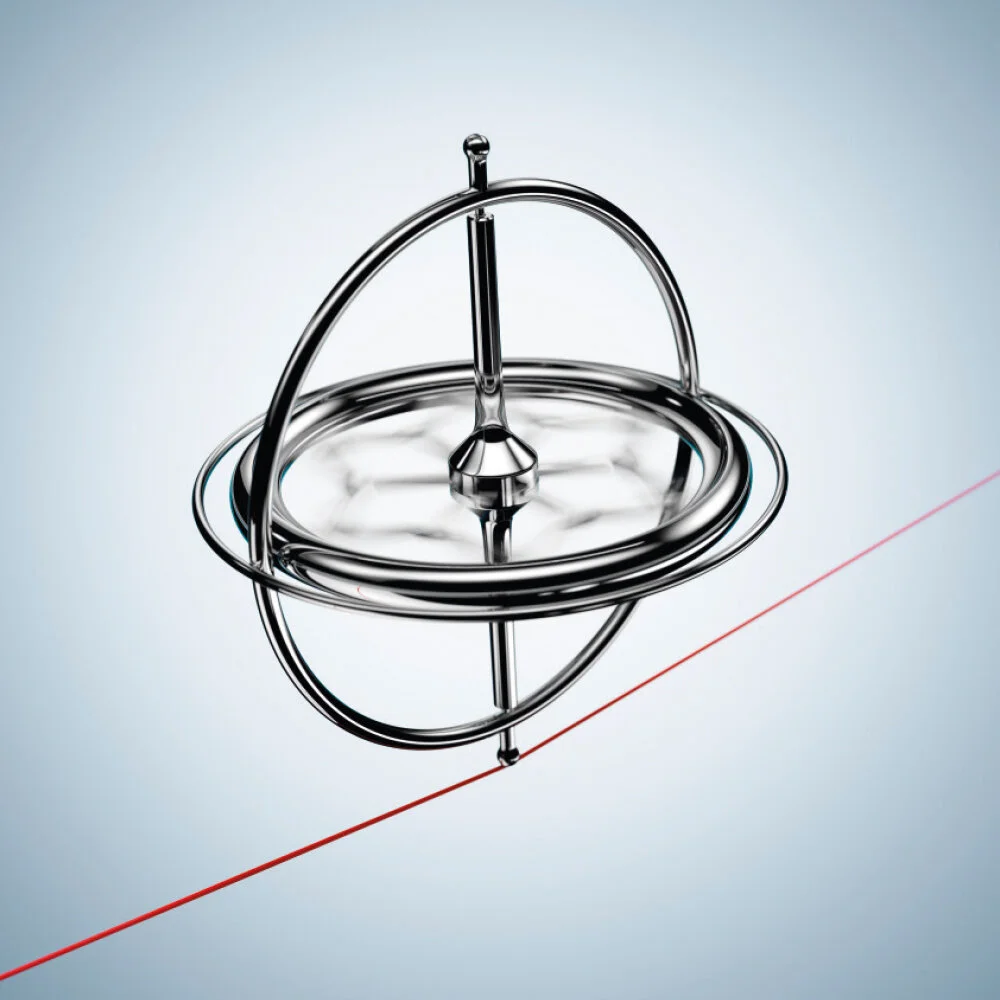The long and the short of it... Why brand matters
Brands – we all know the good ones, or the ones we prefer. We know some of the less good ones, too. But between the highest and lowest points in the brand stratosphere lie a whole range of businesses with, well, what? How do we describe them? By their products? By their logo? By how their staff speak to you? Each of these questions addresses an element of brand, a building block of a greater whole. And that’s the theme of this issue of Brand Matters: brand building blocks.
Sheila Morrison, Director of Brand and Comms, Luminous, reflects on why brand matters and how getting the building blocks right can have a huge impact on your business.
I’ve been doing this brand thing for a while. Not long enough to be considered an industry guru, but long enough to ask myself some thought-provoking questions. Do my PowerPoint slides have any impact? Do I just create marketing fluff? Does any of this matter?
I ponder these questions as I go about my day, starting off by feeding Hank and Leo, my two long-haired mini-dachshunds, their Purina One. I jump on the local Compass bus and then buy my Costa coffee on American Express before tapping in with my Key Smartcard to get my Thameslink train. I read the BBC website (cough... more likely the Daily Mail) on my iPhone during my commute. I get off at Farringdon station, grab breakfast at Benugo and arrive at my office to a big ‘Believe in Brilliance’ logo. This makes me think of our company purpose, ‘To help individuals and businesses shine’ and our EVP, ‘If you don’t limit yourself, we won’t limit you.’
As I make my Nespresso coffee, I walk past Laura, one of our senior designers, who started with Luminous four years ago and is leading the creative development for one of our key clients. I say hello to Stephen, who started as a designer seven years ago and is now the Director of Investor Engagement. Finally, I sit down at my desk and smile at Julie – our rock-star brand strategist who has shone since day one and was promoted after just three months.
And then I remember. I do believe in what I do. I do believe in the purpose and EVP statements I write, the brand tool kits I help to create and the employee engagement workshops I run. It all has an impact. Brand does matter.
Maybe my lingering doubt stems from the early days of my career, when I believed in real beauty but despaired of the casting briefs calling for ‘aspirationally thin Real Women’. Maybe it was the rounds and rounds of Millward Brown ‘adcept’ testing that slowly killed my James Bond-themed ‘Sparkle Never Dies’ campaign idea for a leading dishwashing brand. Maybe it was the time I won a pitch for a start-up make-up company in East London, wrote the entire brand strategy and then watched it get chucked away when the start-up got bought up by a well-known alliance. Maybe FMCG just wasn’t for me.
After several years of consumer branding woes, I decided to focus more on B2B. I was interested in learning about new industries and business strategies, sorting out messy architectures and providing guidance on how to name future products and services, talking to employees and understanding what they loved (and hated) about their culture. I started to feel closer and more connected with the work I was doing. I started to like, even love, my job. And that’s why I came to Luminous – so I could focus solely on B2B and, hopefully, love my job every day.
I’ve only been at Luminous a little over a year, but my decision to head up the company’s brand and comms offer was the right one. I’ve worked with some fantastic people and clients and believe in the power of brand more than ever. So, clearly, I think brand matters and here is why you should, too.
Brand matters because it provides focus
The best brands know who they are and what they stand for. They hone in on what makes them different, using this as a core message, or ‘red thread’ as we brand people refer to it, through all of their brand communications. This kind of focus, of course, means they will not appeal to everyone (and may even alienate some customers), but at least they know who they are talking to. Without a sense of focus, brands struggle because they try to stand for too much, so end up standing for very little, if anything at all.
Let’s take Informa as an example of focus. In the company’s previous boilerplate, it described itself as a ‘leading business-to-business information services group’ – a description that, following the firm’s combination with UBM, had become both a bit vague and generic. In evolving the brand, part of our job was to clarify this ambiguity and identify what makes Informa truly distinct. But with 11,000 employees working in more than 30 countries, across five divisions and with hundreds of products and services, this was definitely easier said than done.
After a programme of interviews, workshops and surveys, we kept circling back to ‘specialism’ – a theme relevant to both Informa’s colleagues and customers. We developed a simple brand idea – ‘Championing the Specialist’ – to capture both perspectives: Informa champions colleagues to become specialists in niche fields and, by doing so, provides its customers with the specialist market insight they need to grow, do business, take better informed decisions and make business breakthroughs. By focusing and honing in on ‘Championing the Specialist’, Informa can now distinguish itself from other ‘information services’ groups and form stronger connections with all its stakeholders. You can read in more detail about our branding project for Informa in the interview with myself and Luminous Creative Partner Jon Towell here.
Brand matters because it provides a blueprint
One of the biggest struggles in brand building is ensuring your brand actually stays ‘on brand’. That’s why it’s important to have focus and to embed your red thread. But, more than that, done right, a company’s brand can act as a strategic blueprint that informs all its marketing activities – from the navigation on its website to naming a product or service, or to launching a new thought-leadership campaign, for example.
Returning to Informa, one of the strategic objectives of the rebrand was to bring together the Informa and UBM employees; a second objective was to build equity for the Informa master brand. Given these objectives, it made sense to adopt a ‘branded house’ approach for Informa’s new brand architecture. With one key strategic decision, we helped to raise the profile of Informa and unify employees previously working in siloed divisions under the Informa brand name. We created rules and guidance for naming divisions (Informa plus descriptor) and renamed divisions that didn’t meet the brief. This gave rise to four new divisions (Informa markets, Informa connect, Informa intelligence and Informa tech) and a tightly defined visual identity. Each of the divisions was given a distinct colour adhering to the Informa master brand guidelines. The new brand architecture, divisional names and brand identity all informed the re-skin and navigational structure of the website.
With a focused brand idea, clear brand architecture and clear visual identity, Informa, in theory, now has what it needs to ‘connect the dots’ and ensure that its brand stays ‘on brand’.
Brand matters because it creates a sense of belonging
Have you ever heard the phrases ‘brand ambassadors’ or ‘brand advocates’? It’s a fancy way of describing someone who supports or feels connected to a certain brand to the extent that they will spread the message of its virtues to others. It may sound like marketing fluff, but brand ambassadors are incredibly important for driving awareness, affiliation, and a sense of belonging, especially with the people working for your brand.
CLS Holdings, another Luminous client I’ve enjoyed working with this year, is a case in point. Having grown from being a founder-led start-up to a FTSE 250 property investment company, the culture of CLS had changed significantly. With the original founder stepping back and new leadership in place, CLS needed help defining a future-facing corporate narrative, including its overarching vision, purpose and values. Working closely with the CLS HR team, we devised a methodology that was not only rigorous but also involved every single employee in the journey. We started off by conducting senior management, supplier and customer interviews, which helped us to develop ideas to evaluate in six different employee workshops. In each of these, we asked employees simple questions – ‘Do you agree? What did we miss? What should we add? What feels true for you?’
Just the fact that we asked these questions shows that CLS cares what its employees think. The fact that we listened and incorporated their feedback is what builds a greater sense of belonging, because now they see more than just words on a page; they see their opinion, their voice, and what they helped to create. And hopefully, in this era of job-hopping millennials, employees at CLS will not only stick around, they will actively promote CLS as a company that cares about, listens to and engages with its staff.
Brand matters because it inspires
When brands find focus, stay on-brand and create advocates from the inside, it can be incredibly powerful and inspiring. Communication cuts through the clutter, customers stay loyal, and employees feel engaged and proud to work at their company. Logicalis knows the power of an inspiring brand first-hand. Our project together is ongoing, but the sense of excitement prior to launching the refreshed brand idea and visual identity is palpable.
In January 2019, after completing various and somewhat disparate comms projects, the Logicalis marketing team felt they needed to regain focus in their messaging and asked for our help. They knew they had something powerful with the phrase ‘Architects of Change’, but acknowledged that it ‘felt thin’ without greater context and clarity in its meaning. We engaged Logicalis’ workforce as well as customers and suppliers, interrogating how the phrase was being used and interpreted. These findings helped us articulate a new purpose, personality, behaviours and positioning for Logicalis, all anchored by the central brand idea ‘Architects of Change’. We then took the idea further, showing how it could inspire a new visual and verbal brand identity. After sharing with the key team, we presented the two prioritised routes to the company’s wider marketing community; of course, there were subjective comments on the colour palette and the lock-up of the new logo, but the overall sentiment was extremely positive. The work felt modern, fresh and inspiring.
While we have some kinks to iron out, both we and the Logicalis team know that we have created much more than imagery and words – we have created a new mindset that will inspire the organisation to think and act differently, shifting it from an old-school IT systems integrator to a strategic, digital transformation partner supremely well qualified to keep its customers relevant in today’s digital economy.
In sum: the long and the short of it
It’s easy to get disillusioned working in the world of brand and comms. But don’t worry, brand does matter! Brand matters because it provides focus and a red thread; if your brand lacks focus, it risks meaning nothing at all. Done right, brand can serve as a strategic blueprint, connecting the dots and informing all marketing communications. More importantly, brand creates a sense of belonging, especially for the people who work for your brand. When people feel connected to a brand, they are more likely to act as its advocates.
Finally, brand matters because it can be incredibly powerful and inspiring, so much so that it can drive a behavioural shift in your organisation, change the way you are perceived externally and sustain your business through the most challenging of times.
Related articles
Evolution not revolution
How Logicalis, the ‘Architects of Change’, went about building their new brand platform.
Engagement, EVP, employer brand. What’s the difference?
Brand Matters asks Adrienne Glad, Head of Internal Engagement at CDC, for her views on the meaning of employee engagement and the challenges of ensuring that everyone in an organisation knows what that is!
Talking brand
Why getting your brand’s tone of voice right speaks volumes and involves being more baboon... Top copywriter Mike Fleming explains.
Precision and momentum – the benefits of better brand building
Robert Jones, Professor of Brand Leadership at UEA and author of such books as ‘The Big Idea’ and ‘Branding: a Very Short Introduction’, gives his insights on the fundamentals and rewards of building a better brand.





